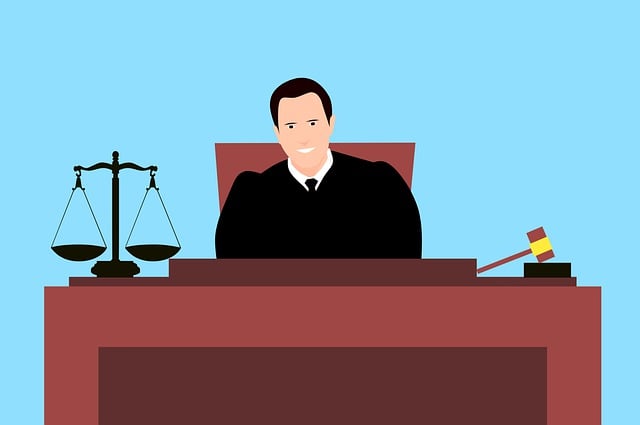The Role of Defense Counsel in Criminal Procedure is vital for safeguarding rights and ensuring justice across diverse legal domains. From challenging evidence to arguing for innocence, their expertise navigates complex litigation, especially in white-collar cases and high-stakes scenarios, influencing outcomes for individuals, businesses, and communities. This crucial role ensures fair representation and protects due process within the criminal justice system.
“Explore various litigation types and the multifaceted role of defense counsel in both civil and criminal cases. Understanding these distinct legal landscapes is crucial for effective advocacy. This article delves into the nuances, examining the defense counsel’s pivotal role in civil litigation, their unique challenges within criminal procedure, and their duty to navigate complex legal environments. By shedding light on these aspects, we aim to equip legal professionals with valuable insights for optimal client representation.”
- Understanding Different Types of Litigation
- The Defense Counsel's Role in Civil Cases
- Criminal Procedure: A Defense Perspective
- Navigating Legal Complexities: Counsel's Duty
Understanding Different Types of Litigation
Understanding different types of litigation is key to navigating legal landscapes, whether for corporate and individual clients or philanthropic and political communities. Each type of case – from civil suits to criminal proceedings – has its own unique dynamics, requiring specialized strategies and expertise. For instance, in criminal procedure, the role of defense counsel is pivotal, ensuring the rights of the accused are protected throughout all stages of the investigative and enforcement process.
Criminal litigation involves the prosecution and defense of individuals accused of crimes, with defense attorneys playing a critical role in challenging evidence, questioning witnesses, and arguing for their client’s innocence or reduced charges. This intricate process demands a deep understanding of legal procedures, evidentiary rules, and constitutional rights, ultimately shaping the outcome of the case.
The Defense Counsel's Role in Civil Cases
In civil cases, the role of Defense Counsel is pivotal, acting as a crucial advocate for the accused individual or entity. Their primary responsibility is to protect the rights and interests of their client while navigating the intricate complexities of civil litigation. Defense Counsel strategize and present arguments to counter the opposing side’s claims, ensuring their client receives fair representation. They meticulously review evidence, identify legal defenses, and formulate strategies tailored to each case, often involving intricate factual scenarios and nuanced interpretations of law.
The expertise of Defense Counsel is particularly evident in high-stakes cases, including complex commercial disputes or white-collar defense matters. In these scenarios, their role extends beyond mere argumentation; they must guide clients through the legal maze, considering the broader implications for their respective businesses and reputations. Skilled Defense Counsel employ a blend of strategic thinking, knowledge of criminal procedure, and effective communication to achieve favorable outcomes for their clients in what can be challenging and dynamic legal environments.
Criminal Procedure: A Defense Perspective
In criminal procedure, the role of defense counsel is pivotal. They serve as the safeguard against potential abuses of power by law enforcement and the prosecution. From the initial stages of an investigation through to trial, defense attorneys play a crucial role in ensuring due process and protecting their clients’ rights. They scrutinize evidence, challenge witness testimonies, and navigate complex legal landscapes on behalf of their clients, often in high-stakes cases that can have significant implications for both the individual and the respective business or community.
The defense perspective brings a critical eye to the criminal justice system, balancing the scales against what might otherwise be an overwhelming prosecution case. Through strategic pleas, robust cross-examination, and clever legal arguments, defense counsel can significantly influence the outcome of trials. This is especially relevant in philanthropic and political communities where the stakes are high, and perceived fairness is paramount.
Navigating Legal Complexities: Counsel's Duty
Navigating Legal Complexities: Counsel’s Duty in Criminal Procedure
In any legal system, the role of defense counsel is pivotal, especially within the intricate landscape of criminal procedure. Defense attorneys serve as a critical safeguard for individuals facing criminal charges, ensuring that their rights are protected and that justice is served fairly. The task of defense counsel extends beyond simply presenting a client’s case; it involves a deep understanding of legal complexities and an unwavering commitment to advocating on behalf of the accused.
The role of defense attorneys in criminal cases goes beyond general criminal defense. They often delve into specialized areas, particularly in white-collar defenses, where financial and corporate crimes are involved. This nuanced approach is essential given the unique considerations that arise in such matters, which may include complex financial transactions, regulatory compliance issues, and the impact on philanthropic and political communities. Effective counsel must navigate these challenges to provide the best possible representation for their clients.
In understanding different litigation types, from civil cases to criminal procedure, it’s evident that the role of defense counsel is pivotal. They navigate complex legal landscapes, ensuring fair representation and protection of their clients’ rights. Whether it’s interpreting laws, gathering evidence, or negotiating settlements, defense counsel play a crucial part in both civil and criminal jurisdictions. By staying informed about various litigation types, they can effectively advocate for their clients and contribute to the integrity of our legal system. The role of defense counsel in criminal procedure, specifically, is a game-changer, emphasizing the need for knowledgeable professionals who can safeguard individual liberties.






